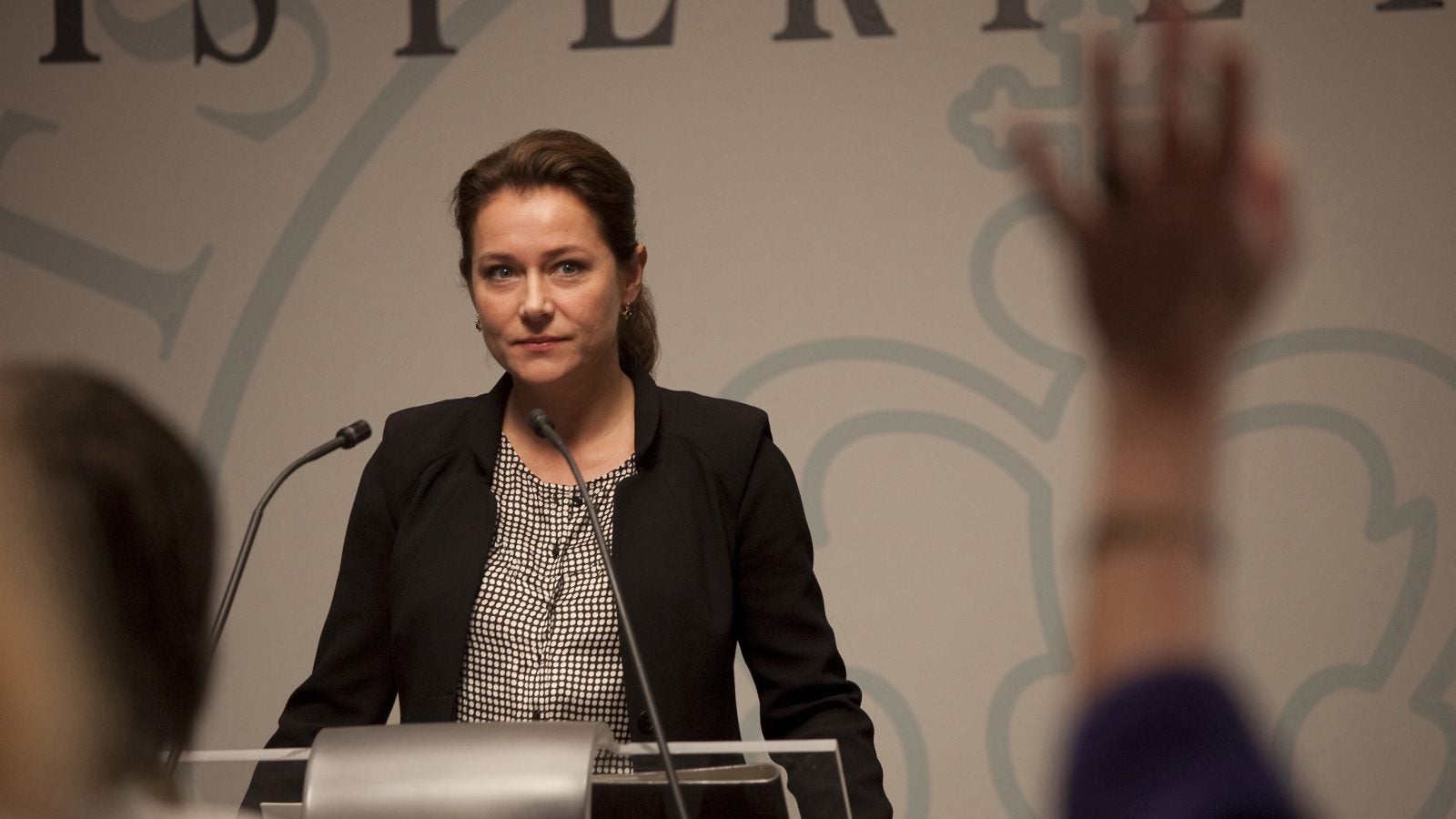The TV shows and novels that will help you understand the weirdness of European politics right now
Reality, in the world of European politics, truly is stranger than fiction.


Reality, in the world of European politics, truly is stranger than fiction.
With the divisive Brexit referendum and the surprise results to the recent snap election, the UK has lately been battered by political change. In Finland, a three-party governing coalition recently collapsed over differences on immigration policy. The Netherlands has been struggling to form a government since national elections three months ago. Spain narrowly avoided a third general in a year and accepted a minority government at the end of last year, after ten months of wrangling. Greece is governed by an uneasy coalition of the far left and the far right.
To help make sense of “these days of a crisis of confidence in the idea of Europe,” the European Parliament has a helpful list of 100 books on Europe to Remember, filled with worthy political works and no-doubt-inspiring academic texts.
But these books are not exactly beach reads. So if recent events have left you wondering, what the hell is the UK doing? Why is European politics so confusing? Or, where’s the West Wing-style series to explain it all? Look no further:
Borgen
Start with this Danish political series, which depicts a principled woman prime minister trying to lead the country while heading an uneasy coalition government. We’re not making direct parallels with Theresa May here, but as the UK comes to terms with its minority Conservative Party government—propped up by a loose agreement with the ultra-conservative Northern Irish Democratic Unionist Party—Borgen is apt because it examines coalition politics, which are the natural state of affairs in much of Europe.
Germany, for example, is governed by a so-called “grand coalition,” whereby the two largest parties from opposing sides of the political spectrum join together to form a government. Denmark, where Borgen takes place, is a small country with a homogenous population that’s highly engaged with the practice of democracy, and where coalitions are a normal state of affairs.
The Thick Of It
, Season 4
Hilarious, awkward, relentlessly harsh, and a masterpiece of profanity, The Thick of It turns the British political establishment inside out, laying bare the spin, the infighting, and the weary childish rivalries at its heart.
The series is the predecessor to the US sitcom about American politics Veep, and both were created by writer Armando Ianucci. But, as with the British and American versions of The Office, the UK series is less riotous and more bleak. There is no redemption for the terrible civil servants, vicious PR people, and hopeless politicians, who blunder through the attempt to govern—in Season 4, during a coalition—through unmitigated chaos.
The Pickwick Papers by Charles Dickens
Steven Fielding, a professor of political history at the University of Nottingham, says there is a long tradition of extreme cynicism in British portrayals of politics in fiction. The Pickwick Papers—which is by no means all about politics—is a joy to read anyway, but especially so as a reflection on today’s UK.
In one section, Dickens’ first novel depicts a by-election in a fictional area called Eatanswill. “You could just change the characters a little bit, and it’s an episode of The Thick Of It,” Fielding says. “Because it’s hopeless. There is no hope.”
The election segment involves two candidates who are essentially the same. It’s all about power, the candidates are being spun remorselessly, and both the politicians and their agents have a disdain for the electorate. Their attitude has some justification: The people themselves are easily bought off.
Wolf Hall
by Hilary Mantel
To dip even further back in time, the 2009 Booker Prize-winner by Hilary Mantel is both a great education about British history—the court of King Henry VIII—and a political thriller.
Main character Thomas Cromwell is a court advisor, privy to the secrets of queens and cardinals, and Westminster is already a seat of power. It will help you understand why Europeans seem so obsessed with the distant past (because it’s fascinating). Mantel is also giving this year’s annual series of Reith Lectures, in which she unpicks the relationship between history and fiction.
House of Cards
(1990 UK version)
The US version of the TV show House of Cards features Kevin Spacey as a machiavellian congressman who aspires to the top job. Its UK predecessor from 1990 is equally brilliant, and very different.
The main character is the governmental chief whip, a role that exists to keep a political party in line and stop its members rebelling and voting against the leader’s wishes. It’s another example of extreme political cynicism that gives some more insight into the sometimes ugly world of negotiations and compromises that happen behind closed doors in politics.
Spin
If all that gets you too far into the weeds of the UK’s self-identity, it’s time to watch Spin, a glossy French political drama. The original French title, Les Hommes de L’ombre, translates as “The Shadow Men,” and refers to the spin doctors behind the public face of government. But the series also has plenty of sex, well-tailored suits, and sumptuous interiors to relieve the sense that European politics is all about bureaucrats in endless meetings discussing fishing quotas.
What about the more upbeat stories? Among all the depictions of European politics in art and culture, Fielding notes, it’s almost impossible to find a positive version of the European Union—which perhaps is telling in itself.